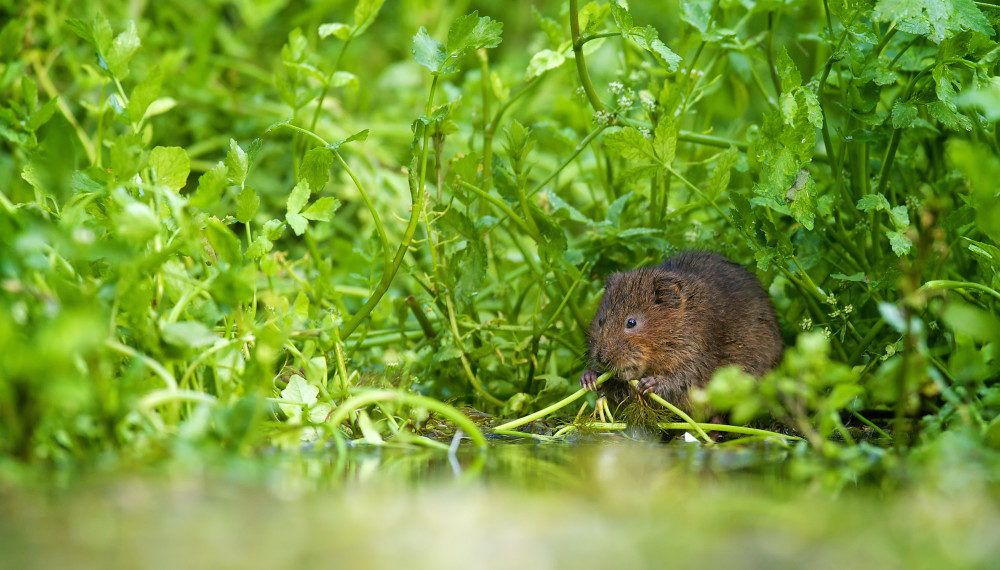Water vole displacement and habitat destruction

Investigating the efficacy of water vole displacement by habitat destruction
Funding for this project has now finished
The problem
The water vole is one of Britain’s most endangered species, however habitat destruction is permitted over short linear distances along waterways to encourage them to move, and this technique is used widely for e.g. development purposes. There is no rigorous study of the impact that such habitat destruction has on water voles – it is assumed that they will disperse of their own accord. It is possible that in fact they adopt more fossorial habits or suffer increased predation from lack of cover, and thus will ultimately be destroyed along with their habitat. This project seeks to investigate whether water vole displacement via habitat destruction is effective.
The solution
We will start by live-trapping and radio-collaring water voles in five distinct sites to establish their territories, before then undertaking vegetation removal over specific lengths of linear habitat, to investigate whether water vole do respond to such habitat manipulation and move. We will investigate the timescales involved with any such movement; the ‘optimal’ amount of vegetation removal and to what degree increased exposure might affect survival rates. This information will subsequently feed back into mitigation guidelines for water voles.
Thank you to all our donors who helped us fund this work. You can help us support more projects like this with a donation today:
